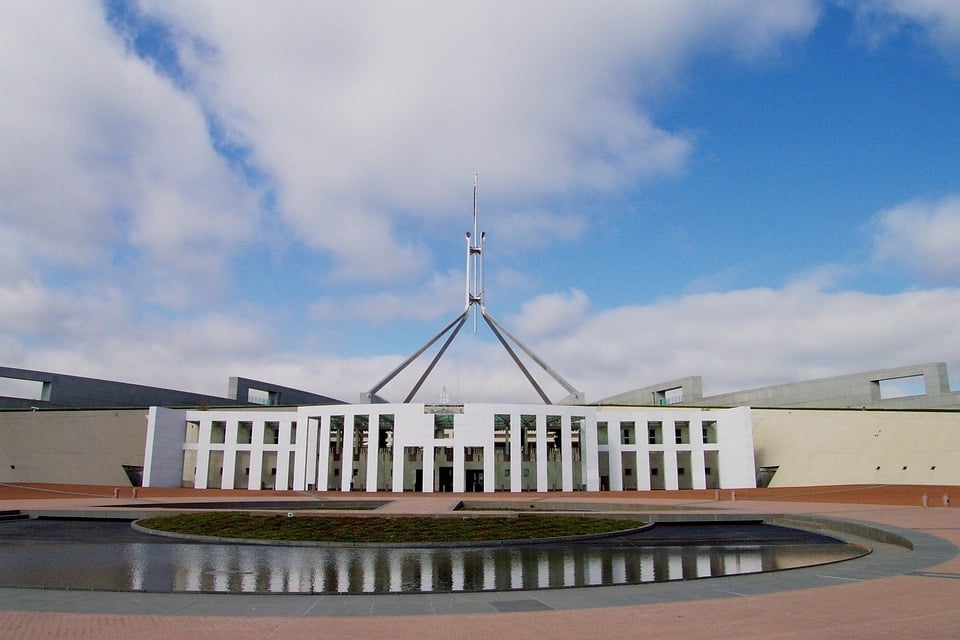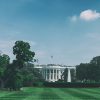
PM Doorstop in Shanghai, China
Well, I’m absolutely delighted to be here in Shanghai this morning to launch, of course, the signing, firstly, of an agreement between Tourism Australia and Trip.com to encourage Chinese tourists to come to Australia. Today, we’re also launching a new tourism campaign that you’ve seen with Aussie icon Ruby the Roo.
Our message here in Shanghai and throughout China is come and say g’day to us down under. Australia is already a destination of choice for Chinese tourists, growing more popular every year, and we saw downstairs the practical demonstration that Australia is the number one long haul destination for tourists from China. And as we see the increase in the middle class in China grow as well, increasingly this is a market that will be of massive benefit for Australia.
China is Australia’s second largest inbound tourism market by visitor numbers. Number one, to save that question, by the way, is New Zealand that’s a little bit closer to come to, and our largest when it comes to tourism dollars spent in our country, the largest market.
Last year alone, Chinese tourists spent more than $9 billion in Australia. That’s jobs for Australians, particularly in regional communities. The agreement that was signed today will focus on growing these tourism numbers back to our 2019 record of 1.4 million and beyond. Last year, that figure reached 860,000. That represented a 26 per cent increase, a very large increase indeed. And the agreement today will assist that. It will also help tourism to Australia from other major markets, such as Japan, India, Singapore and Malaysia, where Trip.com has such a strong presence.
Chinese tourism is growing at a faster pace than other international markets, which is why Tourism Australia here today is making this important investment. The campaign launch right across the different markets will be worth some $130 million that will be multiplied by many types of benefit of this campaign conducted here in China, but also in those other markets that we’re targeting, Japan, India, Malaysia and Singapore.
People to people relations are also, of course, very important. As the meeting I had with the Secretary here in Shanghai earlier today showed. Those people-to-people relations help build understanding, and activities that we can see a spike in, particularly Lunar New Year, present an enormous opportunity for Australia. Happy to take questions.
JOURNALIST: Prime Minister, just on the memorandum of understanding. What’s actually in it? I mean, what can Trip.com do for Australia? And also, there was a stage where people were worried that a lot of Chinese tourists didn’t actually spend a lot of money in Australia. Now, obviously they are. But is that an increasing trend now?
PRIME MINISTER: Increasingly Chinese tourists spend more than tourists from other destinations, and Trip.com in particular, specialises in the high value market, particularly independent market, a lot of their bookings are online. So you see investment, not just in the airfares, obviously, but accommodation. If you look at the areas of highest booking, for example, Saffire Lodge in Tasmania, a high value destination, was first there. And the other thing is that people stay for a period of time. So particular marketing, not just for Lunar New Year, but for significant events such as the Australian Open Tennis, such as the Melbourne Cup, the Grand Prix. These events are what Trip.com specialise in marketing for, New Year’s Eve in Australia, of course, particularly Sydney, a major tourism attraction.
JOURNALIST: The Chinese tourism market has been slow to bounce back post-COVID. The you’ve talked talked a lot about people-to-people relations. Is there concern that in China there’s, I guess, a post-COVID hangover, or, you know, an attitude towards Australia, and that’s what’s slowing that rebound of numbers coming down under?
PRIME MINISTER: COVID had an enormous impact on our economy and on the global economy and on global travel. And what we’ve seen, just as we’ve seen Australians travel, increasingly, once restrictions were left, we are seeing a bounce back in the market. As I said, a 26 per cent increase in the last year is a considerable increase. It’s not up to the levels it was pre-COVID of 2019, but we’re certainly aiming to get there, because tourism is such an important economic benefit for Australia. It’s about jobs, it’s sustainable jobs. Australia has so much to offer as well. And one of the things about the market here is that for many of the visitors to Australia, they will go for a long period of time. It’s not just dropping by for a weekend. They’re here for a period of time. They visit our cities, but they also visit our regions, such as the Great Barrier Reef, Uluru, the other sites that are there in regional Australia.
JOURNALIST: Prime Minister, thank you. What role would Australia play if the US and China went to war over Taiwan?
PRIME MINISTER: Look, our aim of investing in our capability and as well, investing in our relationships, is about advancing peace and security in our region. That’s our objective, and that is why we investing in it.
JOURNALIST: Prime Minister, the person heading the AUKUS inquiry in Washington, Elbridge Colby, has just tweeted about the need for allies to increase their defence spending, and he notes that some are not willing to have tough conversations. What do you say to Eldridge Colby about whether you’ll have a tough conversation with him on defence spending, and if you did, what would you tell him?
PRIME MINISTER: Well, I have discussions with people which are private, and I keep it private, but on defence spending, Australia is considerably increasing our defence spending. I say the same thing privately as I say publicly, $57 billion over 10 years, we are increasing our defence spending and investment by more than $7 billion. We have contributed, as well, to AUKUS already. Going forward, a billion dollars are being forwarded to help increase the industrial capacity in the United States and will continue to invest in whatever we need to improve our capability.
JOURNALIST: For the Pentagon, in the context of AUKUS, to be pushing for Australia to be involved in military planning for a contingency in Taiwan. And is AUKUS underpinned by a strategy of containing China?
PRIME MINISTER: AUKUS is underpinned by something that’s in the interests of our three nations, and will continue to invest in our capability and invest in our relationship.
JOURNALIST: So the USA giving us their crown jewels in nuclear propulsion technology. Isn’t it reasonable that we make some pre-commitment about how those submarines would be used if we expect to get them?
PRIME MINISTER: Well, Australia is, through the AUKUS arrangements, providing considerable capacity, including increasing the capacity of the United States and the United Kingdom for their own capability. That’s why we’re investing.
JOURNALIST: Prime Minister, just on the Henderson shipyard, Sir Stephen Lovegrove, the UK’s AUKUS Envoy has suggested that the government needs to look carefully at whether more investment is needed. Have the Americans and the Brits been pushing you to invest more and more quickly in Henderson. And will you do that?
PRIME MINISTER: We are investing more, and indeed, I’ve been on the Hawaii vessel there just at the beginning of this year, or last year, with Richard Marles. Indeed, one of the things we saw there was an Australian Submariner there working on the Hawaii, getting that experience. That is a practical example of interoperability, the support that Australians are getting from training through these processes.
JOURNALIST: Thanks, PM, when government ministers are asked about whether Australia would be involved in an emergency over Taiwan, it’s dismissed as this is a hypothetical question. This is obviously now not in the realms of the hypothetical. Given this, is it’s very clear this is what the US is asking Australia, what would be, and Tokyo as well, what would we be doing? Do you think it’s important from the important from the point of view of deterrence of China, that you say yes, we’re involved, or no, we’re not involved?
PRIME MINISTER: I think it’s important that we have a consistent position, which Australia has had for a long period of time. We support the status quo when it comes to Taiwan. We don’t support any unilateral action there. We have a clear position, and we have been consistent about that. What’s important when it comes to international relationships is that you have a stable, orderly, coherent position going forward. Australia does. We want peace and security in our region. We don’t want any change to the status quo. That’s Australia’s position today. That was Australia’s position last week. That’s been a bipartisan position for a long period of time.
JOURNALIST: Prime Minister, when we do get these nuclear powered submarines, it’s obviously going to be planning that occurs in terms of how they operate, how we coordinate with our allies. That seems to be broadly what the US is looking for assurances on. Would you be open to engaging at a planning level on how we would use that capability with the US? Or do you think Australia would do that on its own?
PRIME MINISTER: We have through the AUKUS agreement, treaty level agreement, are very clear understandings of what AUKUS is for. We want peace and security in our region. We don’t change our position on a day-to-day basis. That is what the world needs, and that is what we’ll continue to do.
JOURNALIST: Prime Minister, you mentioned peace and stability there as the core position for Australia. Do you believe that is the same objective for the United States when it comes to looking in the Pacific?
PRIME MINISTER: I speak on behalf of Australia, and I wouldn’t presume to speak on behalf of any other nation. That’s what sovereignty is about. What I do on behalf of Australia is say we want peace and security in our region. We are investing in our capability and investing in our relationships.
JOURNALIST: Prime Minister, just briefly, would it be reasonable for the United States to demand any sort of assurances from Australia on a Taiwan contingency, given the United States itself maintains a policy of strategic ambiguity, at least in theory on Taiwan?
PRIME MINISTER: Well, you’ve just answered the question yourself, I think, through the comments that you’ve made.
JOURNALIST: In what sense, sorry Prime Minister?
PRIME MINISTER: I think you can get it.
JOURNALIST: What about in private Prime Minister?
PRIME MINISTER: Well, in private by definition, that’s in private. So you don’t take private comments at a media conference. We engage in a mature way. That’s the way that we deal with our relationships.
JOURNALIST: Prime Minister, when you arrived in China in 2023, monthly DFAT trade numbers, looked like Australia was going to set a record with its exports to China. They did in 2023. This time you arrived, the first five months of the year Australia’s exports to China are down 16 per cent. Do you think Australia’s exports have peaked to China?
PRIME MINISTER: No, I think there’s an opportunity for growth in the economic relationship and in trade, something that we no doubt will have discussions of while I am here as well. But there is a range of products. For example, beef exports have increased considerably.
JOURNALIST: Prime Minister, you expressed the importance of sovereignty on the question of defence spending. What about on the question of hugely expensive nuclear powered submarines? Are we going to get the US submarines with a whole lot of strings attached about where they can go and what they’re going to do in the event of a conflict, or is Australia actually going to control their use?
PRIME MINISTER: We have our AUKUS arrangements in place. They’re very clear. They’re ones that I think are in the interests of Australia, the United States and the United Kingdom, and in the interests of peace and security in our region, in the Indo Pacific. It’s something that has bipartisan support in our parliament, and what’s more, it’s something that has support, from the discussions that I’ve had with members of the US Congress, members of the US Senate, with the UK Government as well. We’ll continue to work through all of these issues. Our alliance with the United States is a very important one for Australia. So we’ll continue to engage constructively in a coherent, stable, orderly way. That’s the way I conduct this government. Thanks very much.
https://www.pm.gov.au/media/doorstop-shanghai-peoples-republic-china


